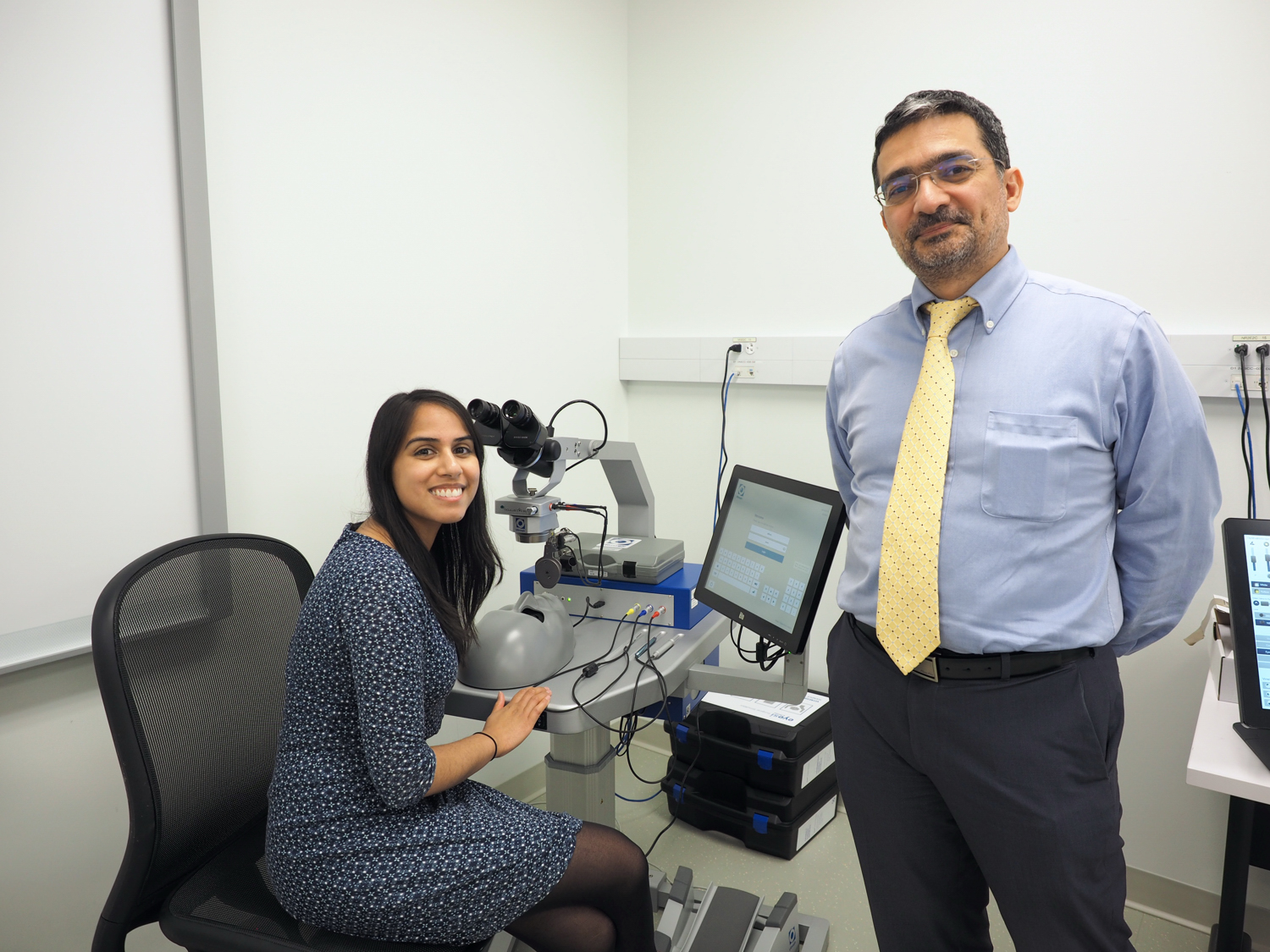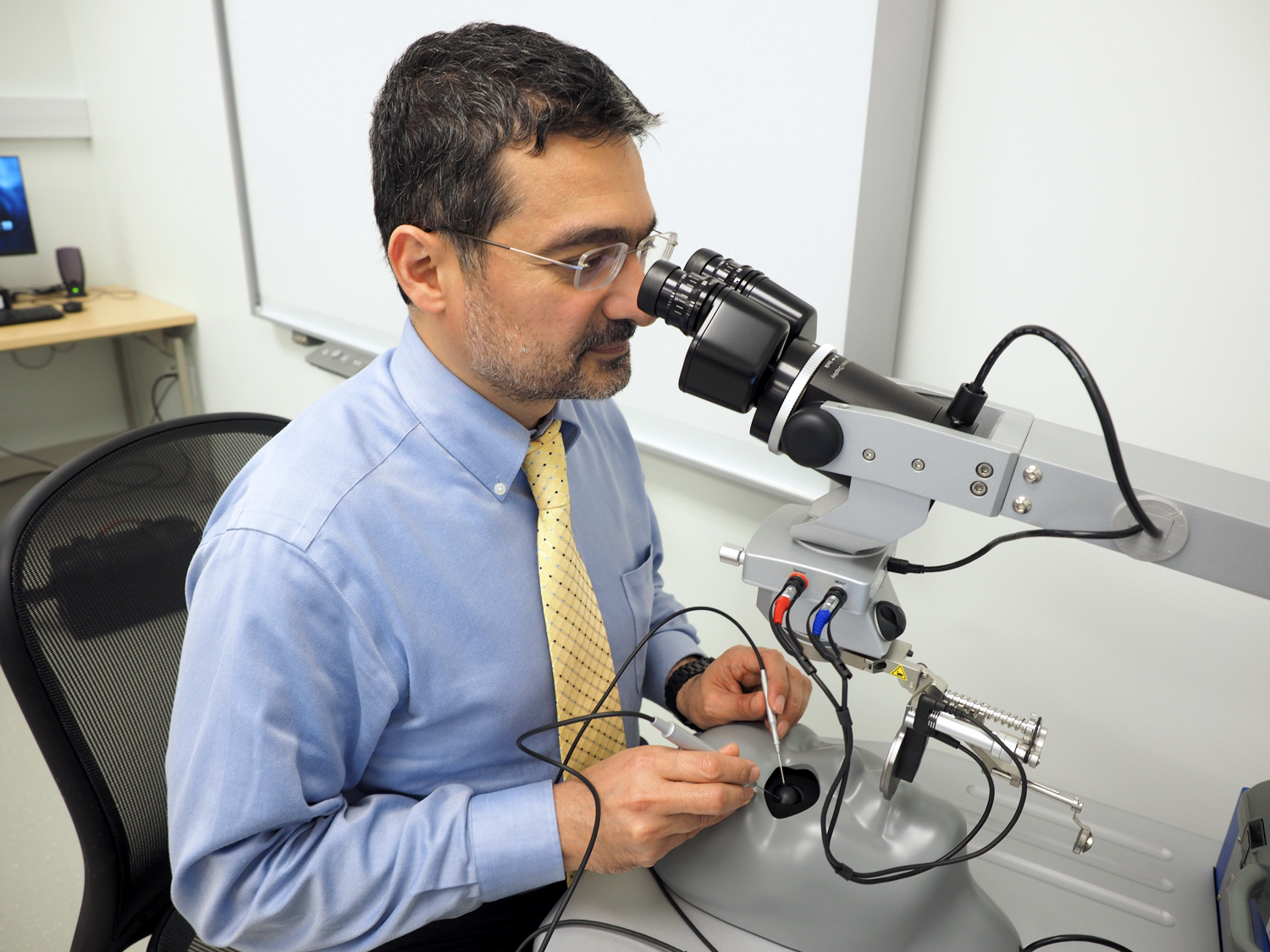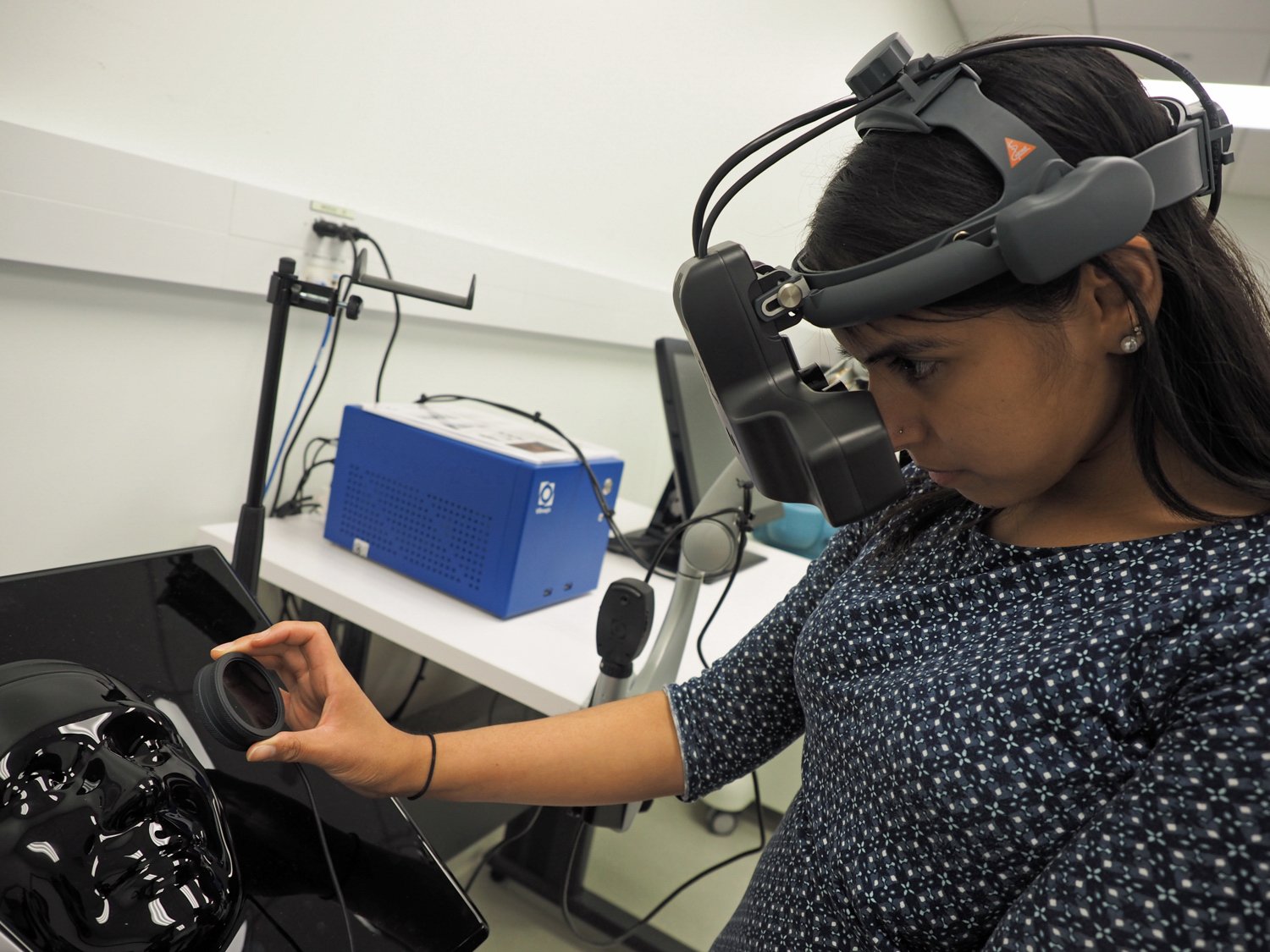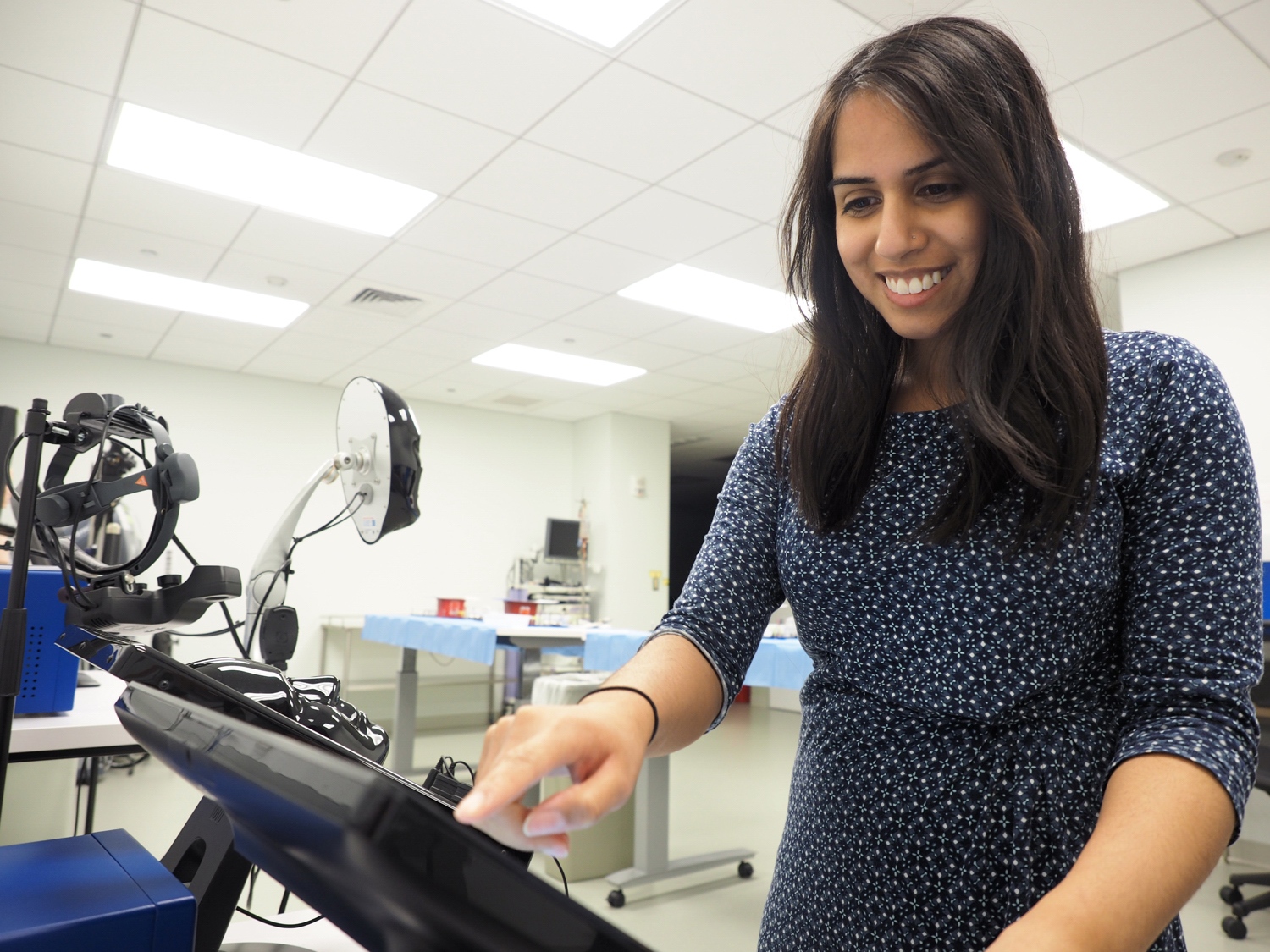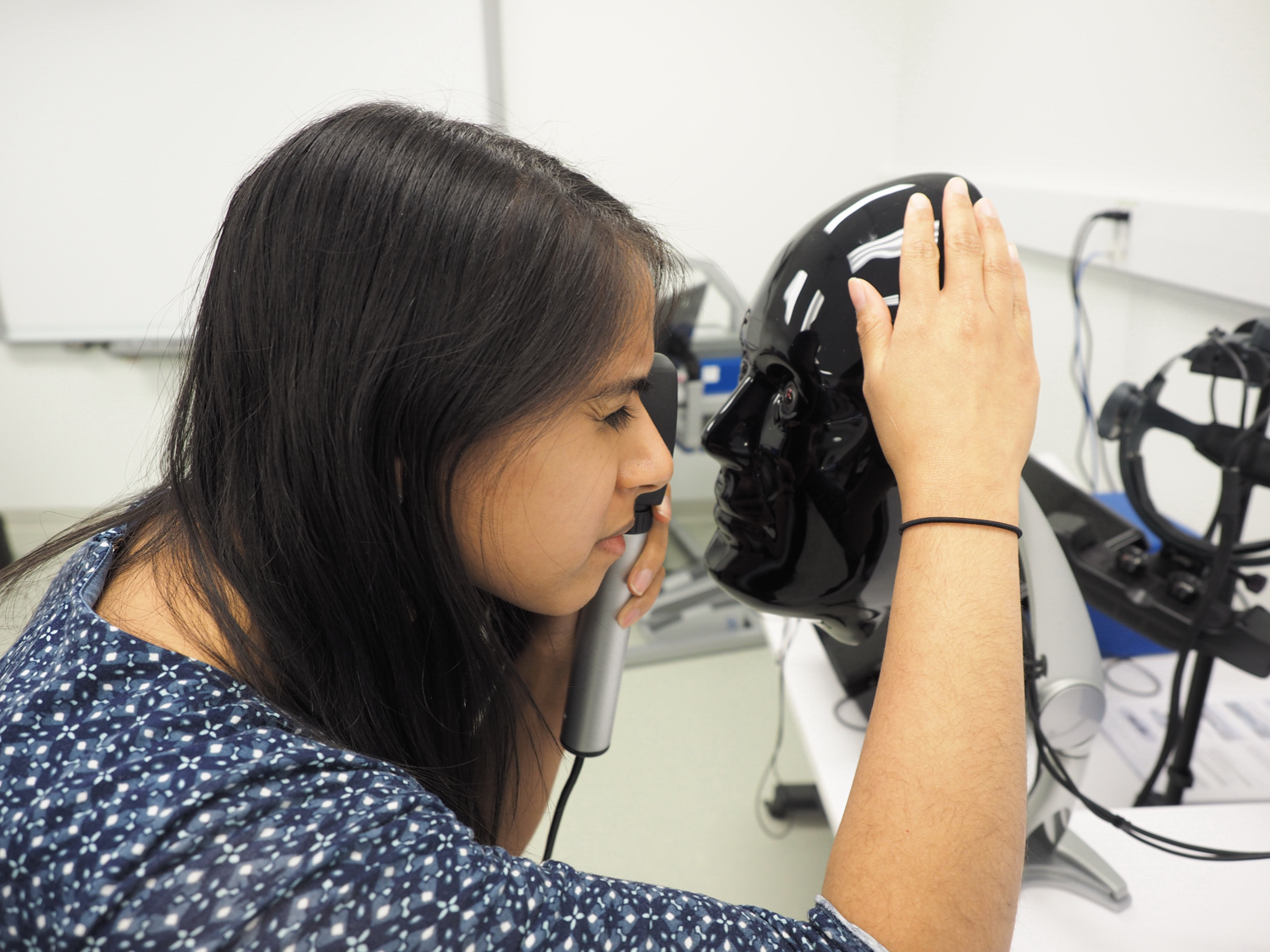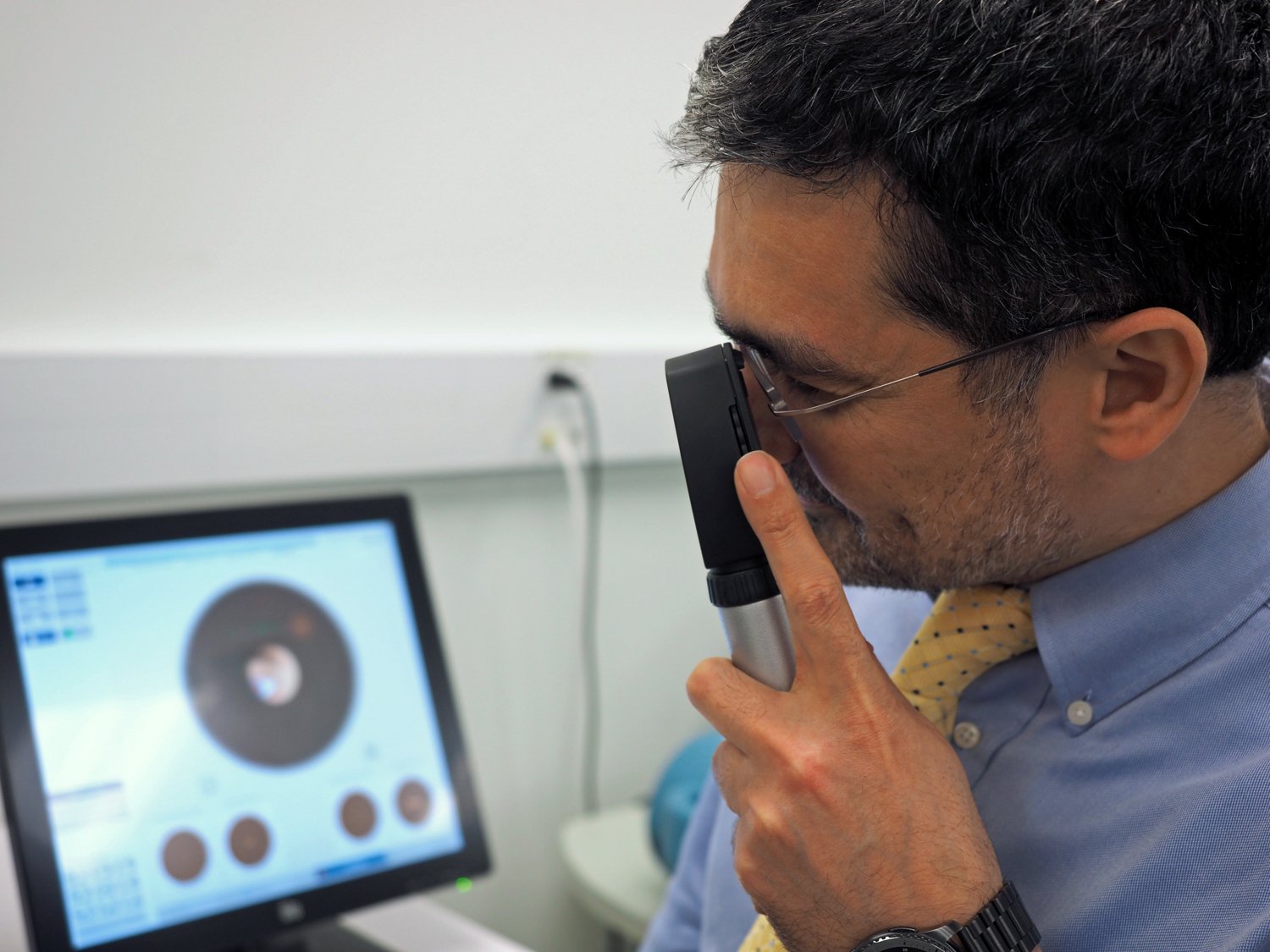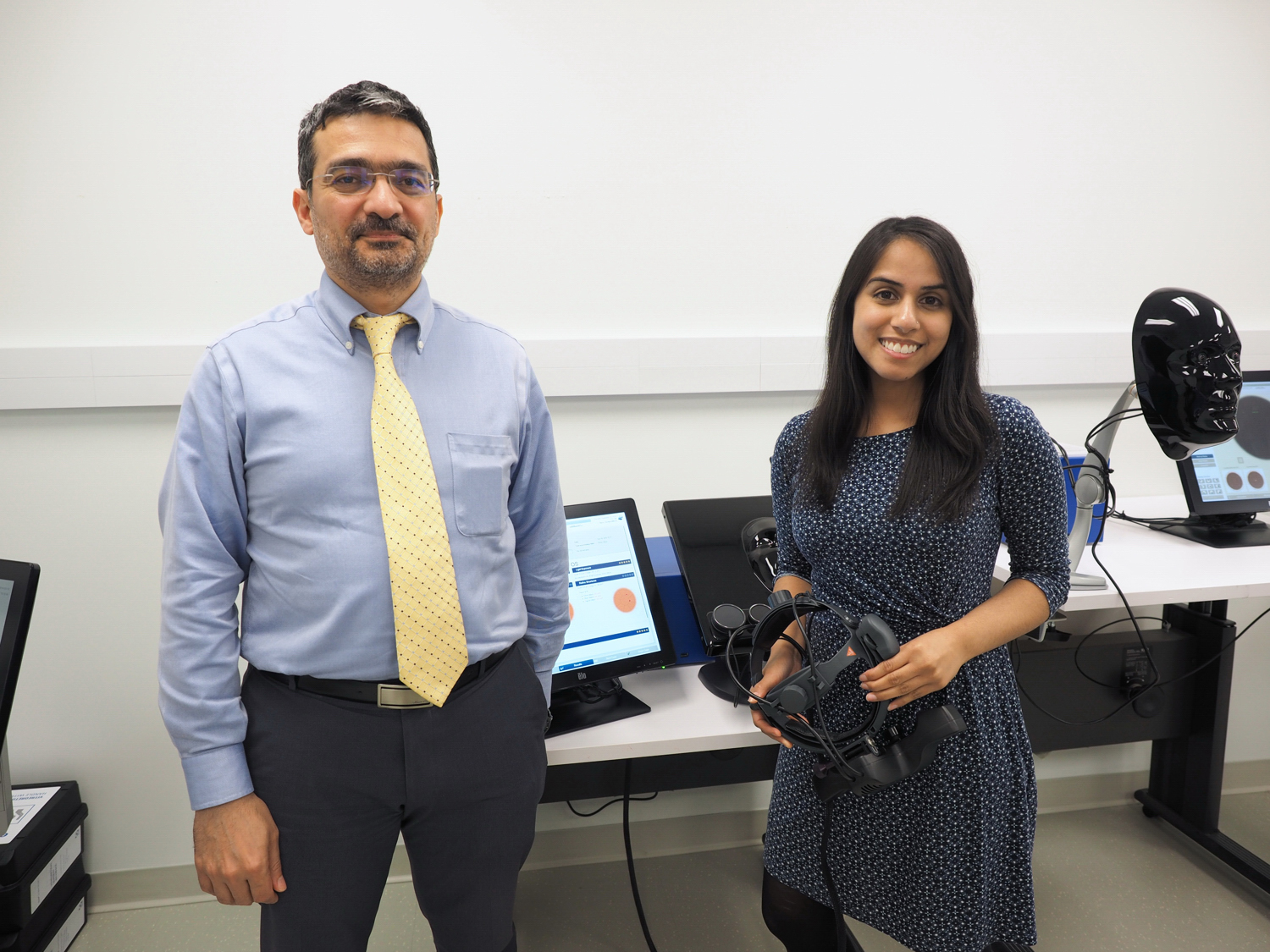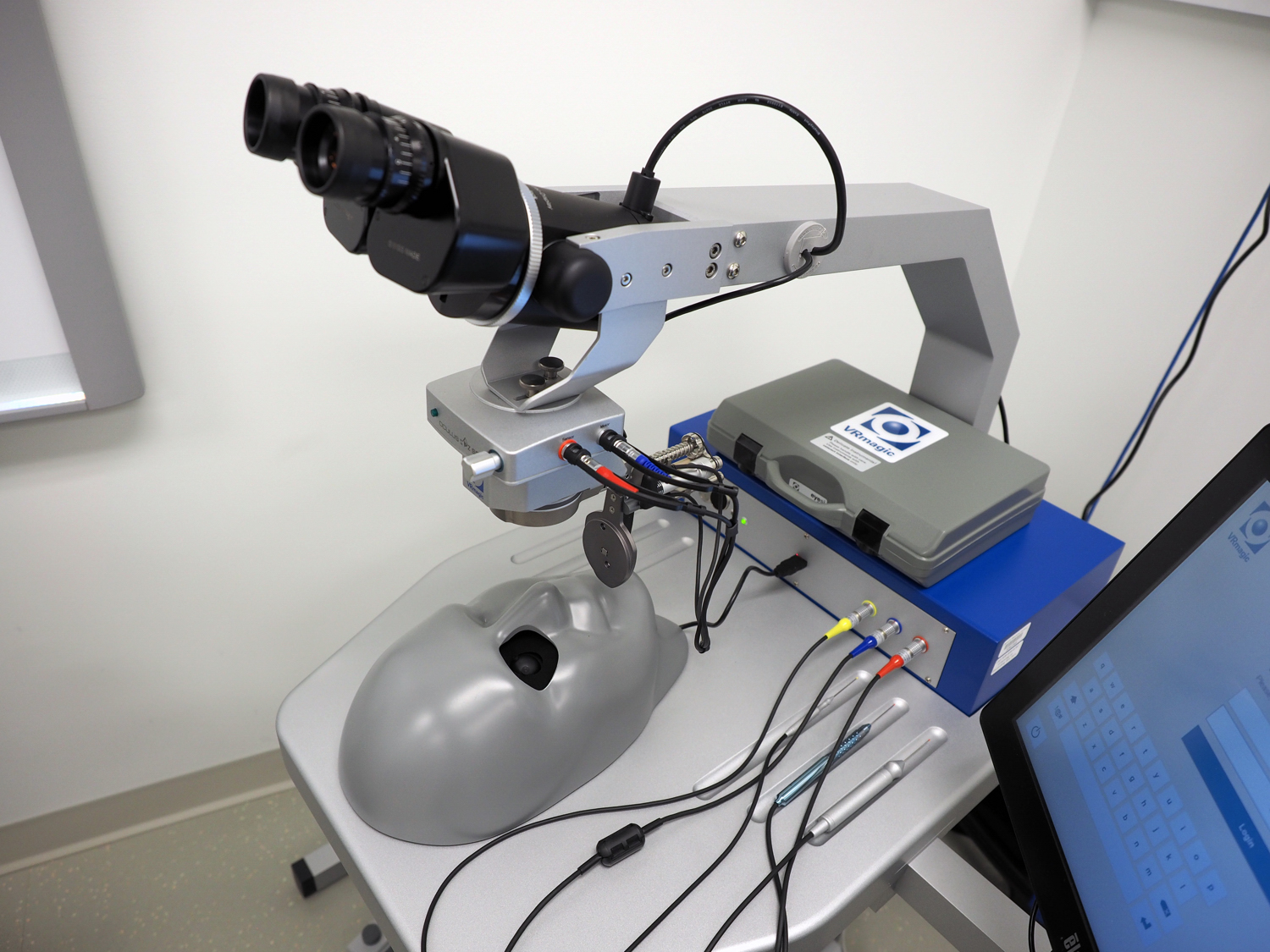New Eye Simulator for UMass Ophthalmology Residents
Date Posted: Tuesday, October 01, 2019The Ophthalmology Residency Program at UMass recently introduced a brand new, state-of-the-art surgical and medical simulator to the Department. After an orientation and training session in July, the Residents have now started to use the surgical simulators as often as weekly for clinical and surgical skills practice.
VR Magic’s Eyesi simulator, a component of only a handful of residency programs in the country, can be used in various ways. Three different Eyesi simulator stations are now a part of the Surgical Simulation Lab at UMass Chan Medical School: a surgical simulator, indirect ophthalmoscope and direct ophthalmoscope. The high-end virtual reality surgical simulator includes interfaces to practice cataract as well as vitreoretinal cases, and even to manage complications. Software modules at the station consist of training content that Residents can use for basic skills training, to try their hand at case-based examples with varying levels of difficulty, and track their progress with module assessments.
The ophthalmoscope portions are also extremely beneficial to both residents and medical students. Like the surgical simulator, the indirect ophthalmoscope is made up of a curriculum for self-guided training with retinal exam cases of increasing difficulty. The direct ophthalmoscope is often a skill known to be challenging for new medical students, and the simulator offers opportunities for collaboration between the Ophthalmology Residents and the medical school to help students with device handling and identifying pathology.
With performance summaries and clinically relevant cases, Ophthalmology residents are able to better prepare themselves as clinicians seeing patients and also to be more prepared for surgical eye cases in the OR. Many studies in the literature have shown the effectiveness of practicing on a surgical simulator as a beginner or an experienced surgeon. In particular, learning barriers to skills such as phacoemulsification can be broken down with virtual reality practice, and complication rates are often lower amongst trainees who have utilized it. UMass Ophthalmology Residents are able to access the simulator any time throughout their training. The possibilities for learning and skills improvement are endless with the new Eyesi skills simulator.
